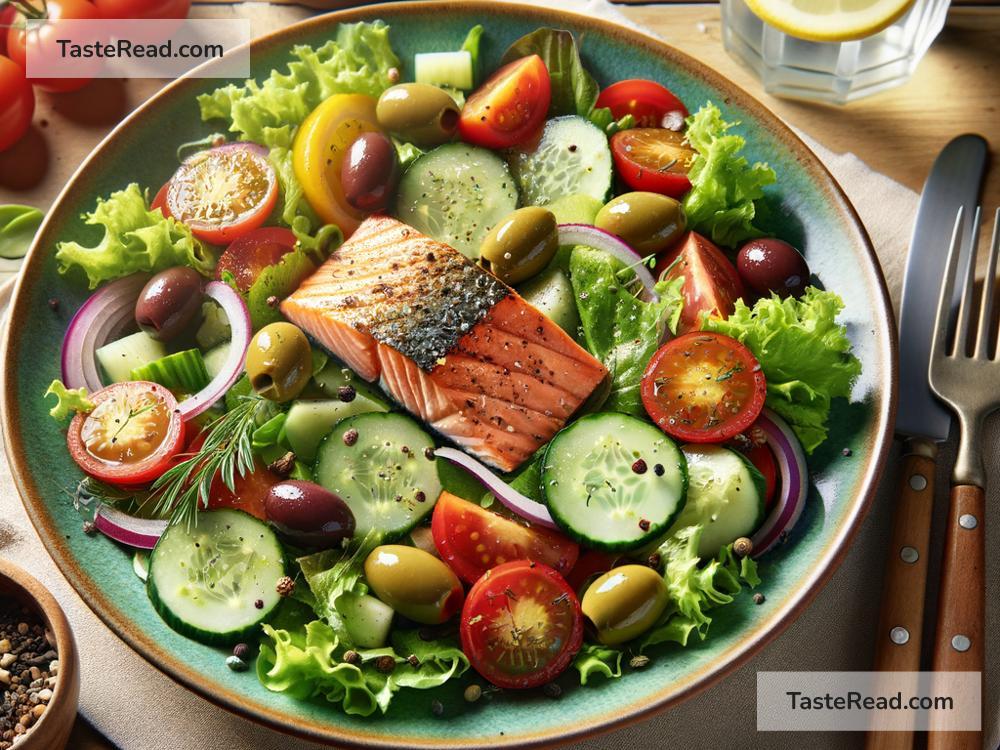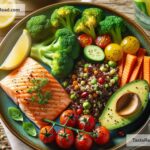The Benefits of a Balanced Diet for Blood Pressure Regulation: Supporting Cardiovascular Health
Having a healthy and balanced diet isn’t just about looking good or feeling strong; it’s also essential for keeping your blood pressure in check and supporting your heart’s health. High blood pressure, also called hypertension, is a common problem that can increase your risk of heart disease, stroke, and other serious health conditions. Luckily, a balanced diet can play a big role in keeping your blood pressure at healthy levels and improving overall cardiovascular health. Let’s dive into how food affects your blood pressure and why making smart choices can make a big difference.
What Is Blood Pressure and Why Is It Important?
Blood pressure is the force of your blood pushing against the walls of your arteries as your heart pumps. When it’s too high, the arteries can become damaged or stressed over time, which increases your chances of having heart-related problems. Maintaining healthy blood pressure ensures that your heart and blood vessels are working smoothly, keeping you strong and active.
For adults, the ideal blood pressure is usually around 120/80 mmHg. If your blood pressure climbs above 140/90 mmHg, doctors may diagnose you with hypertension. The good news? Eating the right foods can help you manage and lower your blood pressure naturally.
What Is a Balanced Diet?
A balanced diet means eating a variety of foods that provide your body with essential nutrients, like vitamins, minerals, protein, carbohydrates, and healthy fats. A diet filled with whole grains, fruits, vegetables, lean proteins, and healthy fats helps support your body’s needs while reducing risks for diseases—including high blood pressure.
The key to a balanced diet isn’t about cutting out foods entirely; it’s about moderation and making healthier choices. Limiting processed foods, sugary snacks, and foods high in salt and saturated fats is an important step toward better health.
How Does Food Affect Blood Pressure?
The foods you eat impact your blood pressure in multiple ways. For example, some nutrients help relax blood vessels and reduce pressure, while others can have the opposite effect.
Here’s how different nutrients influence your blood pressure:
-
Sodium (Salt): Eating too much sodium causes your body to hold onto excess water, which increases blood pressure. Processed foods like chips, canned soups, and fast food are usually loaded with salt, so cutting back on these can make a big difference.
-
Potassium: Potassium helps balance out the effects of sodium and relaxes blood vessels. Foods rich in potassium, like bananas, oranges, spinach, and potatoes, can help lower your blood pressure.
-
Magnesium: Magnesium supports healthy blood flow and helps keep your blood vessels flexible and open. Nuts, seeds, whole grains, and leafy green vegetables are good sources of magnesium.
-
Fat: Not all fats are bad! Healthy fats found in foods like avocados, nuts, seeds, and olive oil can improve heart health. On the other hand, saturated and trans fats found in fried or processed foods can raise blood pressure and harm your heart.
The DASH Diet: A Proven Way to Lower Blood Pressure
One diet specifically designed to help lower blood pressure is known as the DASH diet, which stands for “Dietary Approaches to Stop Hypertension.” The DASH diet focuses on eating:
- Plenty of fruits and vegetables
- Whole grains
- Lean proteins like chicken, fish, beans, and tofu
- Low-fat dairy products
- Nuts and seeds
- Limited amounts of salt and sugary treats
Studies show the DASH diet can significantly lower blood pressure in just a few weeks, proving how powerful healthy eating can be for your heart.
Benefits of a Balanced Diet for Blood Pressure Regulation
Here are some key benefits of a balanced diet for blood pressure regulation:
-
Helps Lower Blood Pressure: By reducing salt and processed foods while boosting potassium, magnesium, and healthy fats, you can naturally lower your blood pressure levels.
-
Reduces Risk of Heart Disease: Maintaining a healthy blood pressure has a direct impact on heart health. Eating more heart-friendly foods, like vegetables and whole grains, helps lower the risk of heart attacks and strokes.
-
Improves Energy and Overall Health: A balanced diet doesn’t just benefit your heart—it helps you feel more energized, improves digestion, and supports better immunity.
-
Supports Healthy Weight: Excess weight can raise blood pressure, so eating a balanced diet helps you manage your weight, which in turn helps regulate your blood pressure.
-
Promotes Long-Term Wellness: Habits like eating nutritious meals daily can lead to lifelong health benefits, helping you stay strong as you age.
Practical Tips for Better Eating
If you’re ready to improve your diet and take control of your blood pressure, here are some simple tips to get started:
- Add more fresh fruits and vegetables to your meals.
- Choose whole grains like brown rice, quinoa, and whole-wheat bread over refined grains.
- Snack on nuts, seeds, or fresh fruit instead of chips or candy.
- Limit your intake of processed foods high in salt and sugar.
- Drink plenty of water and avoid sugary drinks like soda.
- Add flavor to your foods using herbs and spices instead of salt.
Small Changes, Big Results
Your diet has a powerful impact on your health, and even small adjustments can lead to big improvements over time. Focusing on foods that support heart health and blood pressure regulation—like fruits, vegetables, whole grains, and lean proteins—can help you feel your best and protect your heart.
Remember, it’s never too late to start making healthier choices for your body. Eating a balanced diet is one of the simplest and most effective ways to support your blood pressure and overall cardiovascular health.


